CONSTRUCTIVE DESIGN RESEARCH
Abstract research paper
The Dutch biking culture is a visual overload like no other: deeply ingrained into the nation’s identity for centuries, it not only reflects the potential for examining the Dutch people’s preference for this desired manner of transportation, it also holds a promise for shaping a desired sustainable future. In this context, The Bike Kitchen at the University of Amsterdam introduces itself as a unique case study, in which a focus was set on designing sustainable toolkits that narrow, slow and/or close down resource use through a Practice-oriented design approach.
The methods conducted in this field study include observational research, interviews, as well as the implementation of a research design probe to gather insights into visitors’ experiences, perceptions, and interactions with TBK. During the thematic data analysis process, categorizing the insights into practices-as-entity
The methods conducted in this field study include observational research, interviews, as well as the implementation of a research design probe to gather insights into visitors’ experiences, perceptions, and interactions with TBK. During the thematic data analysis process, categorizing the insights into practices-as-entity or practices-as-performance stood central, in order to provide a conclusion on the relationship between materials, meanings, and competencies within TBK operations. The outcomes revealed an importance in the spreading of knowledge through various methods and interactions related to learning, particularly between participants and the mechanic. It was concluded that with the implementation of a research probe and gaining understanding of this through various other methods, useful insights were gained that could be used to adjust a space like TBK in order to narrow, slow, and/or close down the resource loop through learning-based practices.
or practices-as-performance stood central, in order to provide a conclusion on the relationship between materials, meanings, and competencies within TBK operations. The outcomes revealed an importance in the spreading of knowledge through various methods and interactions related to learning, particularly between participants and the mechanic. It was concluded that with the implementation of a research probe and gaining understanding of this through various other methods, useful insights were gained that could be used to adjust a space like TBK in order to narrow, slow, and/or close down the resource loop through learning-based practices.
Individual poster
The poster presents a concise overview of my interpretation of the research findings and highlights key aspects of the research paper. It was shared with Romee, the spokesperson of TBK Amsterdam, to share the insights and findings gathered from the study.
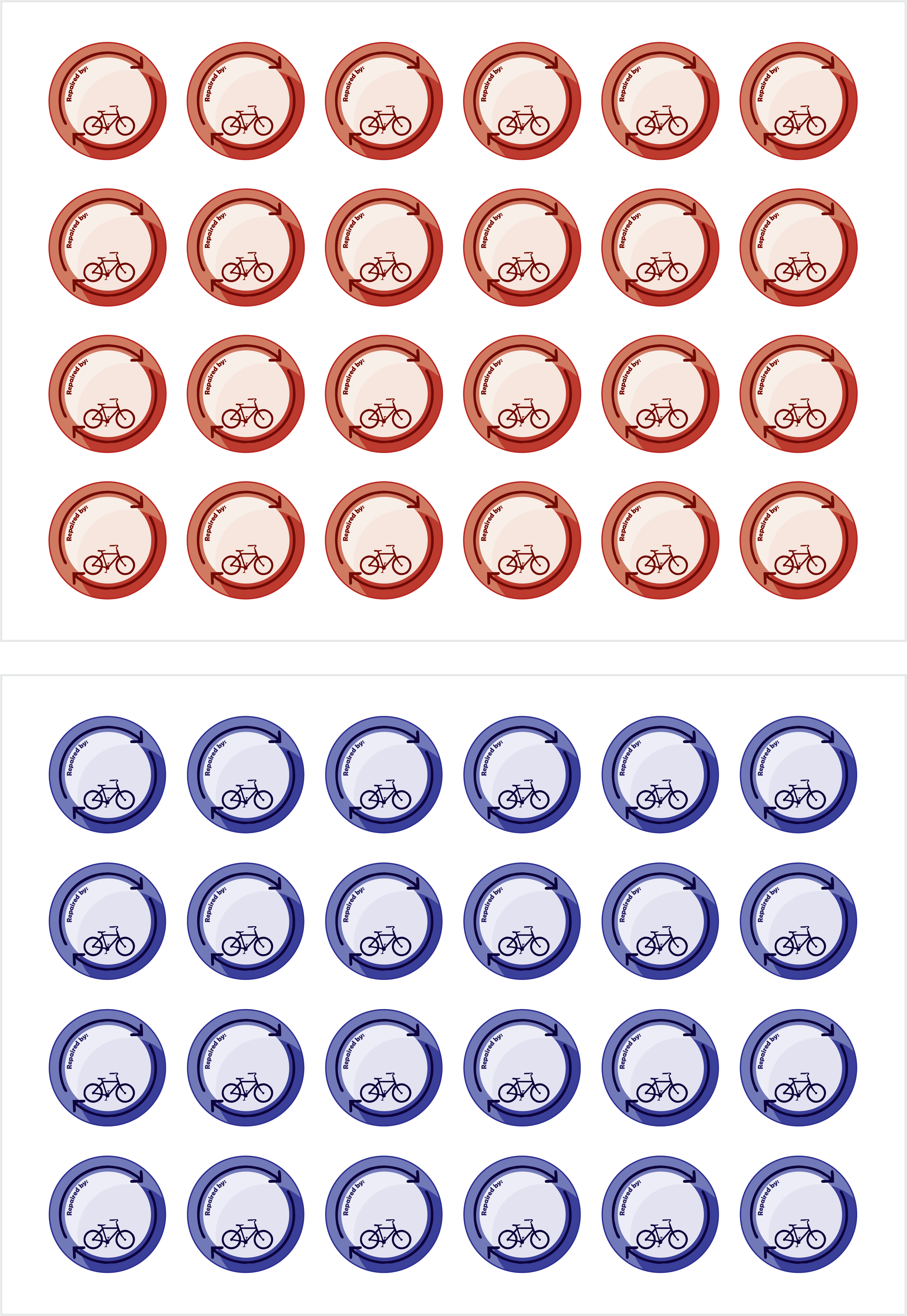
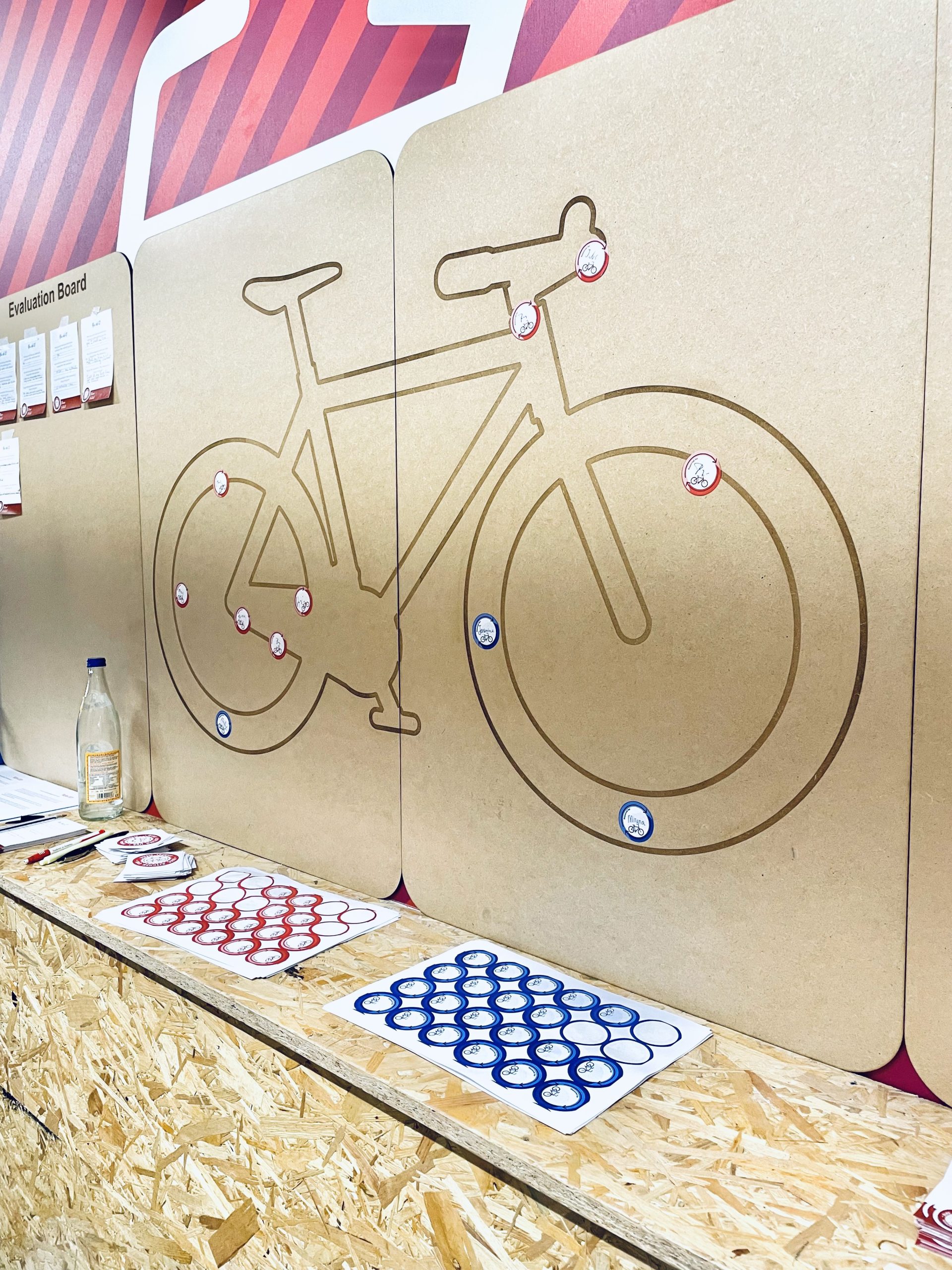
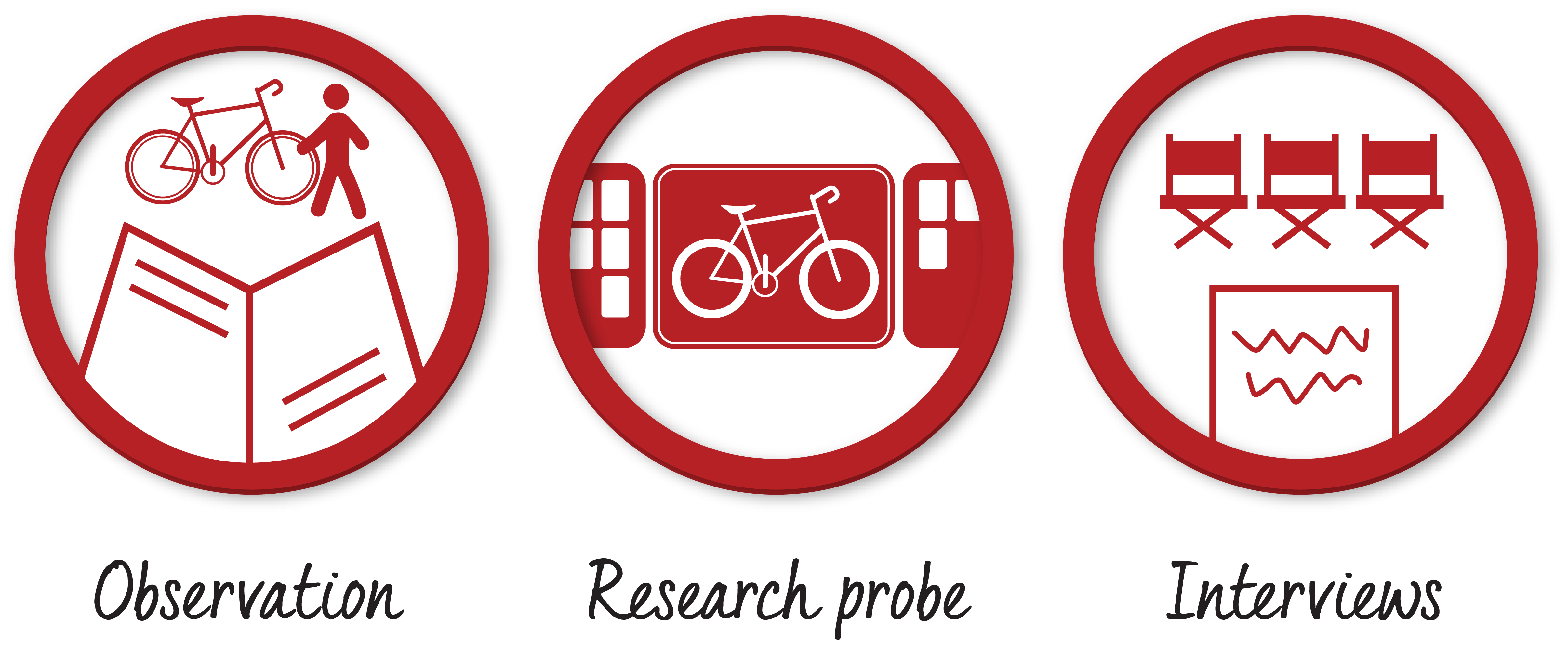
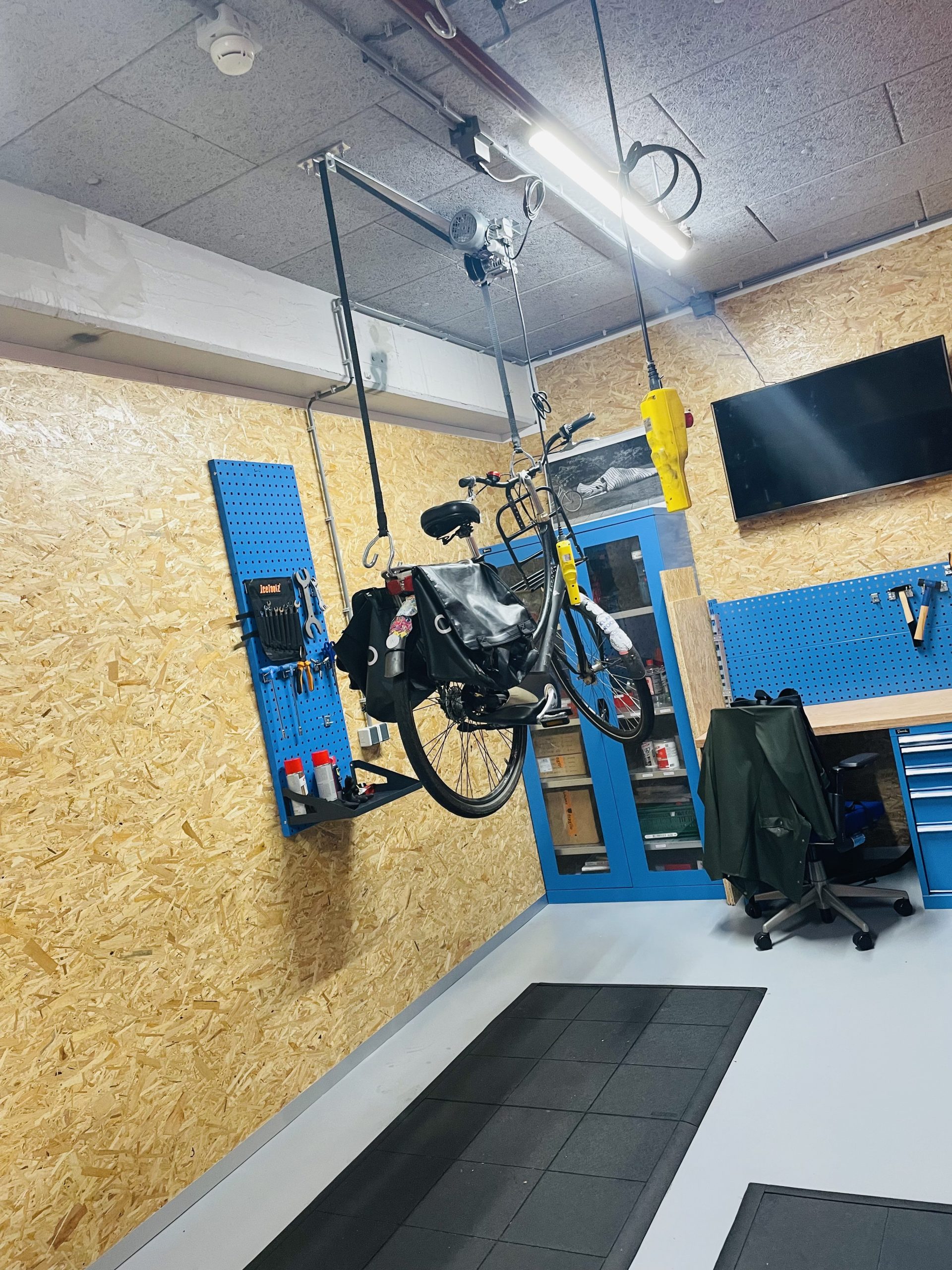
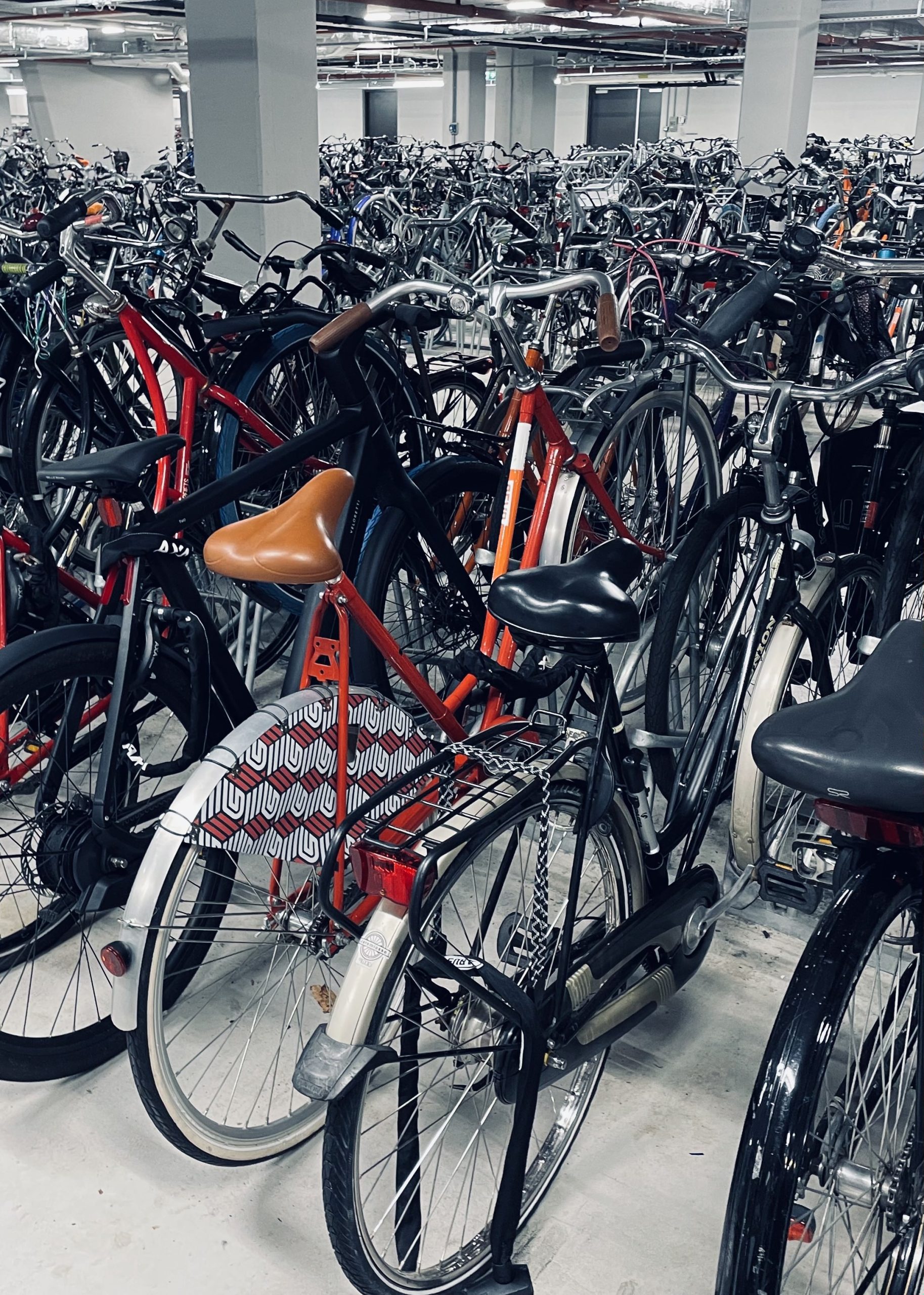
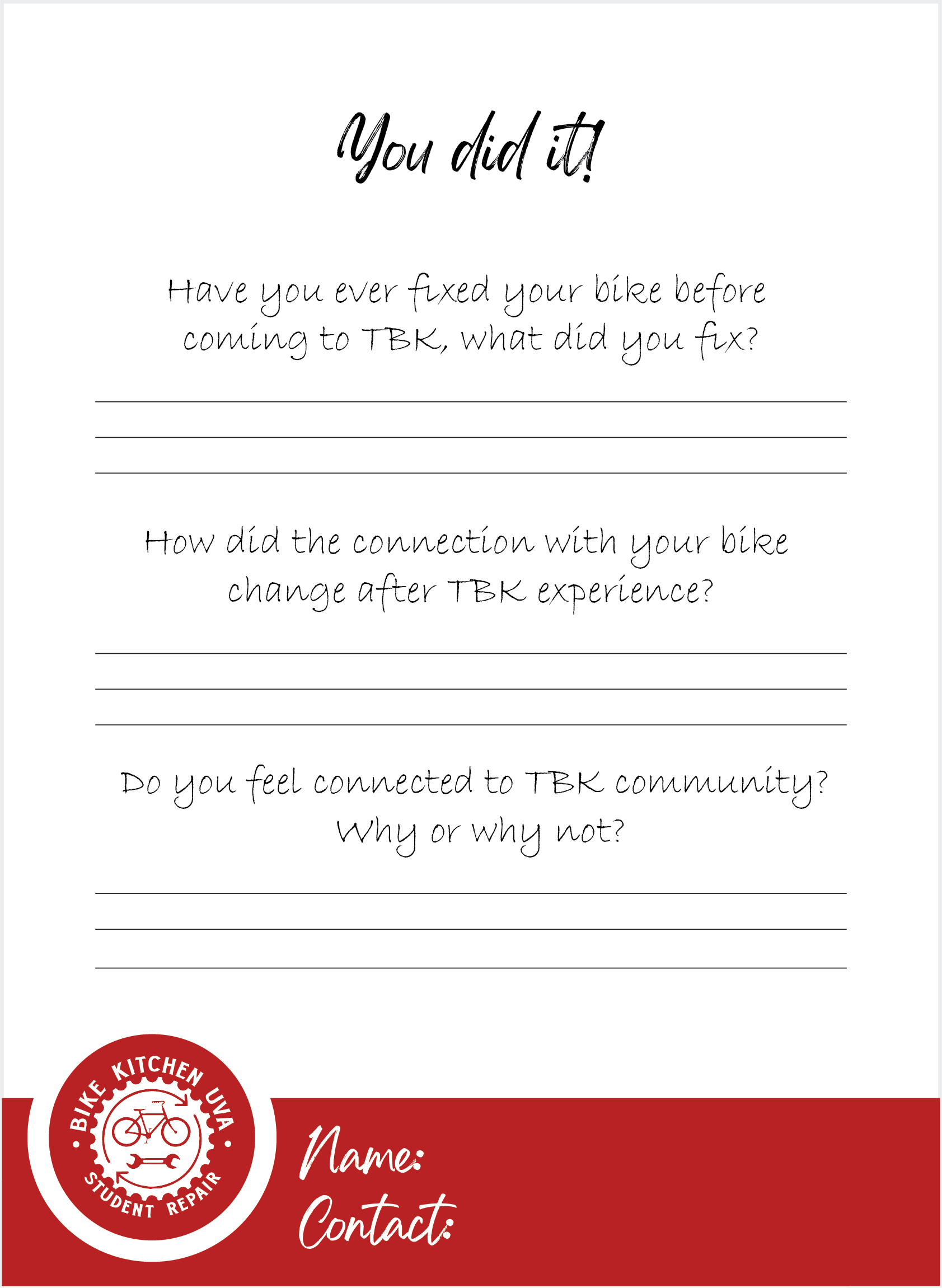
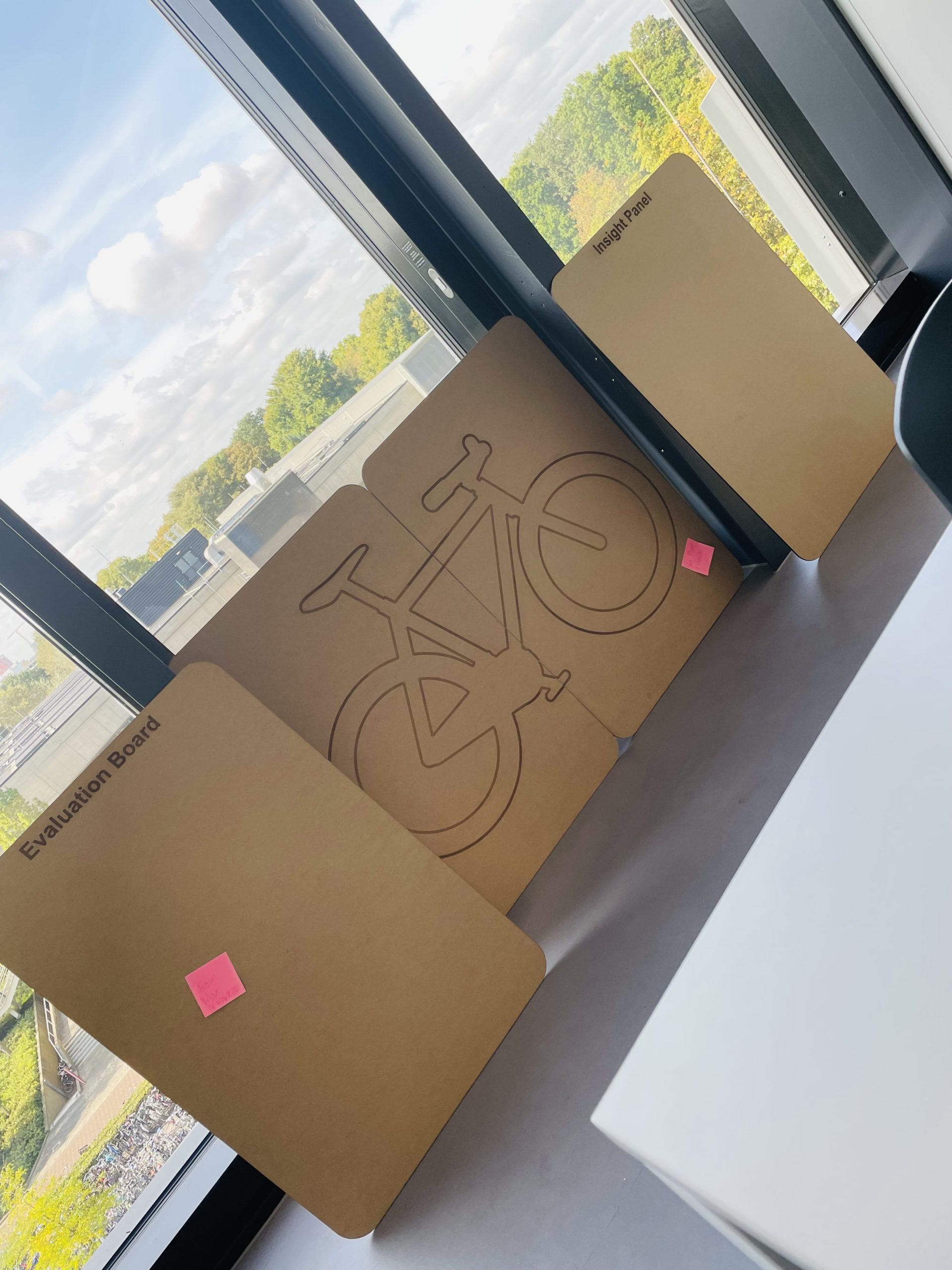
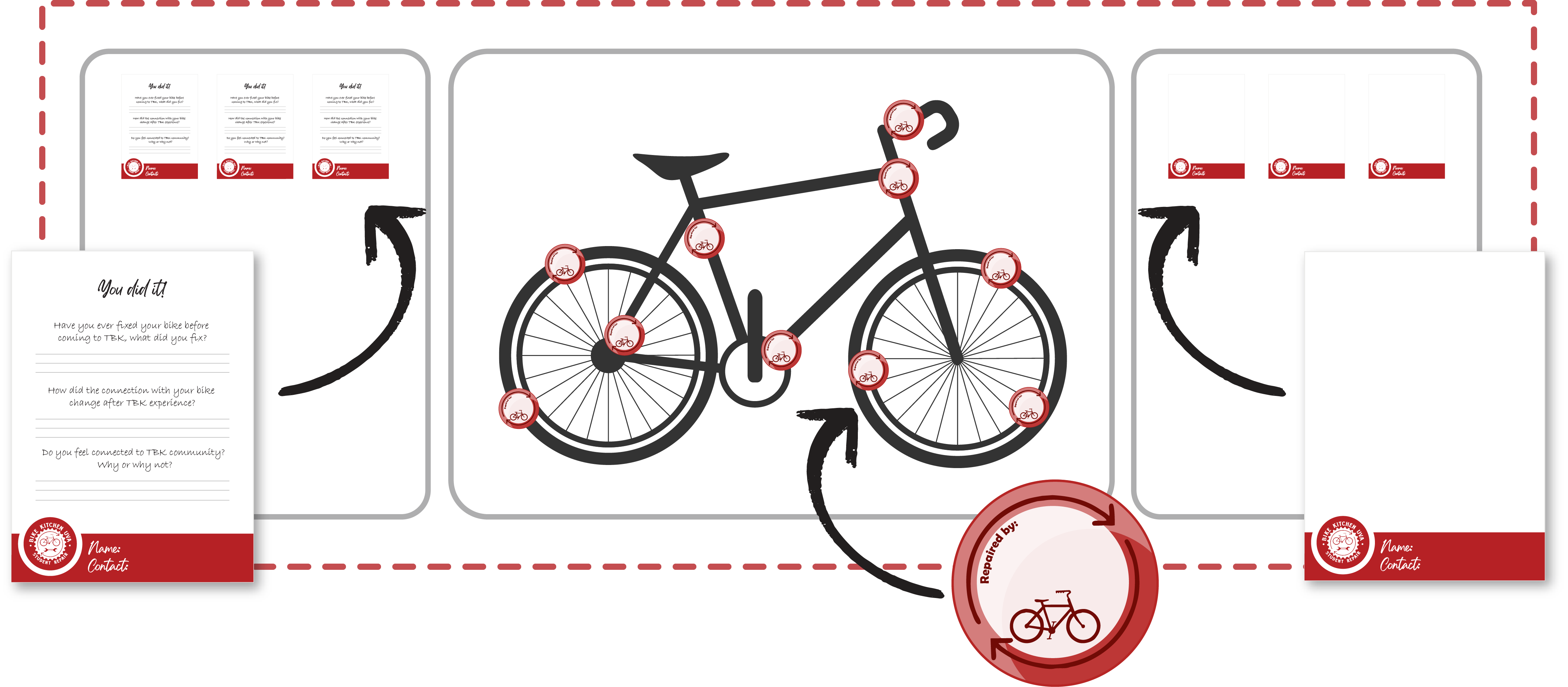
Milling by Max crutzen

